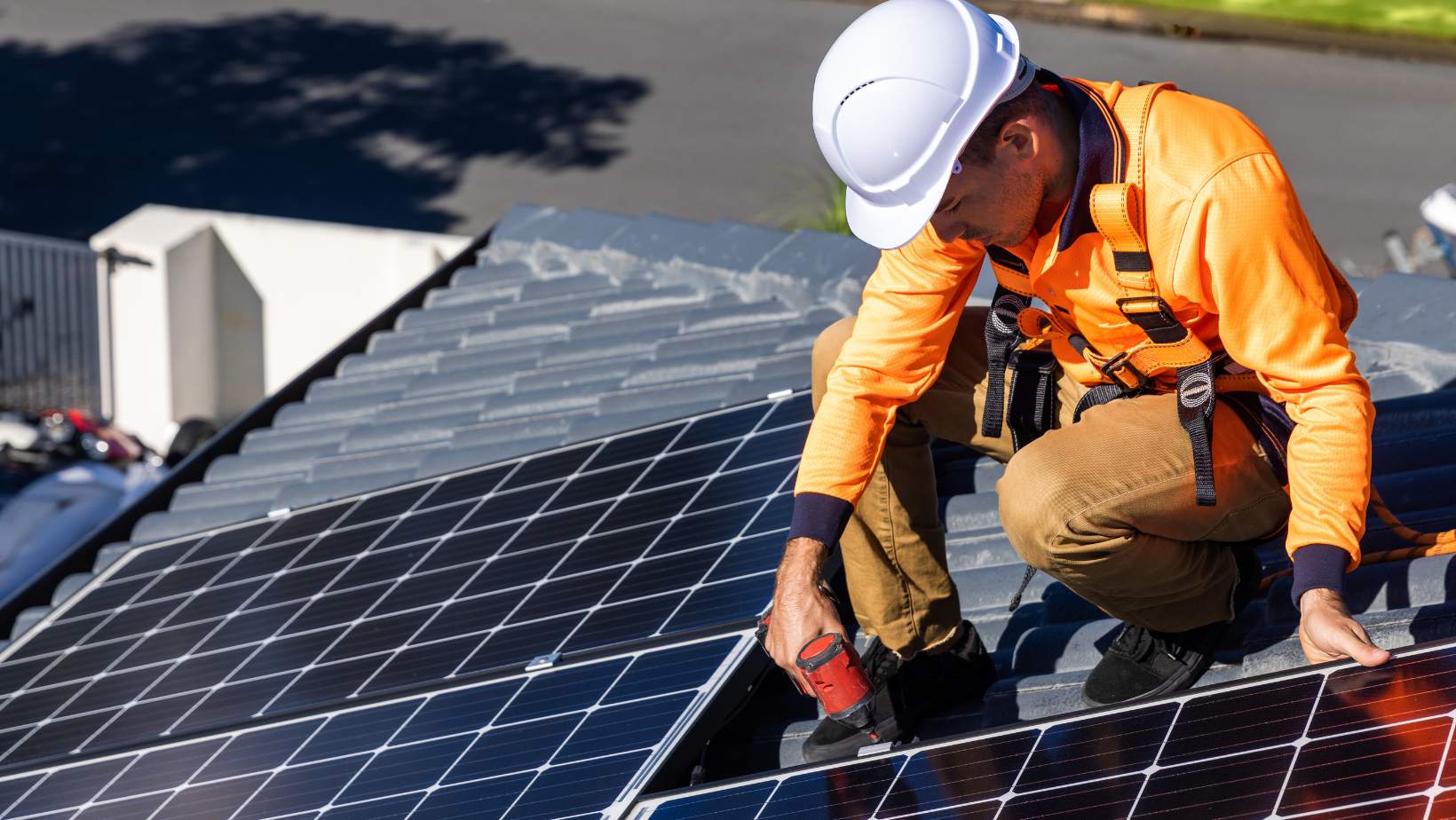
Wired To Succeed in Solar Roofing
The solar industry is growing. The Department of Energy reports the number of photovoltaic (PV) installations increased by 44% year over year in the first half of 2023. That’s the fastest pace ever.
The upward trend in the solar roofing market is opening the door for business expansion. But this increase in demand has also left electricians grappling with the complexities of PV systems. These include long-tail liability for operational problems that might not appear for years. Even if it’s the product that’s faulty, not the installation, you may be the first party a customer expects to take responsibility for repairs and replacement expenses.
Liability lawsuits tend to name all parties associated with the system that led to damage or injury. For that reason, you should be aware of your contractual liabilities and your financial risk in the event of property damage or harm to individuals. If you are a subcontractor installing solar panels as part of a larger build, make sure you are adequately protected by either your insurance or the owner’s or general contractor’s insurance.
One way to limit your liability is to hire qualified staff. The rapid growth in popularity of solar power has led to increased demand for skilled electrical workers. But electricians qualified to install and troubleshoot solar panels aren’t easy to find. Choosing the right employees to work on solar panel installation and maintenance, and keeping their skills up to date, can protect your company from liability losses.
What types of solar roofing claims are common
As solar energy has caught on, the number of claims against companies selling these systems has risen. A recent Time magazine article notes that solar panel-related complaints to the Federal Trade Commission are up 746% since 2018.
For example, a recent lawsuit filed in Florida alleged two solar companies routinely installed inoperable systems and failed to honor warranties for roof damage. All parties involved had to hire defense attorneys and begin investigations.
Roof damage, water infiltration, fires and less-than-optimal operation are common complaints you may face, even months or years after you install a solar system. Deficiencies specifically related to electrical work have included:
- Failing to ground solar energy elements
- Improperly securing PV modules
- Exceeding current limits on busbars or conductors
- Using non-DC-rated equipment in DC circuits
Wiring problems are at the heart of many faulty installations. Those include splicing issues such as methods not rated for the specific environment or conductor type.
Alongside installation errors are design flaws, where structural framing isn’t compatible with PV panel support or wiring accommodations. Sagging roofs and hot spots along wood framing have also occurred.
In some cases, local building codes have not kept pace with solar energy. When a fire or another loss occurs, however, the property owner will most likely name all those involved in the solar energy system and let them fight over who is at fault.
Consider these questions before taking on a solar project:
- Is your electrical business protected by insurance for solar claims?
- Are you or your employees qualified for the intricacies of the job?
- Have you vetted each of your solar projects to minimize your involvement in poor design or product failure?
Manage your risk
To minimize your liability, create and follow a strict risk management protocol.
- Work with only qualified structural engineers, architects and designers.
- Use highly trained solar specialists on your projects.
- Know the structural requirements before installing a system. Make appropriate modifications a part of your contract with the property owner.
- Estimate and install a system based on environmental factors such as wind and snow load.
- Have a specialist in structural and electrical codes and employ that person’s knowledge in every project.
- Partner with a good structural engineer who can inspect all properties for adequacy of existing framing and appropriateness of design.
- Fully understand the financial exposures of any contract or warranty you enter into.
- Obtain electricians insurance that incorporates the perils your solar business faces, particularly long-tail exposure to claims years after the project is completed.
As part of your risk management plan, you may wish to partner with a fire investigator who is qualified to evaluate incidents related to solar energy. In some scenarios, it may appear that the PV system caused the blaze, but other contributing factors may be discovered.
For example, a property owner may fail to maintain a solar PV system, resulting in corroded cables, loose connections and damaged wires, among other wear and tear issues. Correctly identifying such maintenance-related conditions could exonerate you or your installer.
With the ongoing, rapid innovation in the solar power industry, electricians who install PV systems may struggle to keep up with developments and hire and train labor. While there’s high profit potential for those who staff properly and manage their projects well, there’s also a high risk factor.
Building a solid risk management program is integral to succeeding in this niche. Talk to an insurance professional who understands the liability exposure you face as an electrician. Commercial general liability and professional liability insurance can help cover the cost of defending against lawsuits that could threaten your business.
This content is for informational purposes only and not for the purpose of providing professional, financial, medical or legal advice. You should contact your licensed professional to obtain advice with respect to any particular issue or problem.

